There’s been quite a lot of talk in the UK media about SwitchCo, the organisation tasked with switching from Analogue to Digital TV in the UK. Luke Gibbs of OfcomWatch wonders if it will come to life this week?
 It seems as though digital switchover has been going on for ages. And yet it hasn’t even begun – it’s just been a load of people talking about it!
It seems as though digital switchover has been going on for ages. And yet it hasn’t even begun – it’s just been a load of people talking about it!
Despite the Government announcing the creation of SwitchCo earlier in the year no-one has heard anything since. The only things we know for sure are that Barry Cox is the Chairman and some bloke called Ford Ennals is the Chief Executive. No website, no contact details, nothing – the proverbial blank screen. Perhaps it’s a precursor for what’s to come in 2012!
[ed. – an extremely limited site does seem to have emerged today!]
We also know that the Government remains committed to switchover. How? Because, the Labour Party election manifesto outlined the switchover process and thereby made both the process and timeframe an election pledge. So if you voted for Labour you voted for switchover. And if you didn’t vote for them or didn’t vote – well – tough luck they won the election.
Now, it’s possible that Labour will renege on its pledge. It’s certainly been known before for political parties to come into Government and do a spot of backtracking. Could this happen with switchover?
Well, later this week we may get some answers. On Thursday evening Secretary of State for Culture, Media and Sport, Rt Hon Tessa Jowell, MP, will make the keynote to the Royal Television Society’s bi-annual conference in Cambridge. As if Jowell hasn’t got enough high profile issues on her plate – licensing, Olympics, gambling – she also has digital switchover.
It is likely that in her keynote will offer a clearer vision of how switchover will take place and what SwitchCo’s role will be in making it happen.
After outlining the process it makes sense for SwitchCo to launch in earnest, publishing the technical and marketing plans for switchover. Will they be what the world has been waiting for?
 From a technical perspective switchover it is not going to be a walk in the park. A phased switchover to digital by geographical area between 2008 and 2012. And we’ll only know how many people might be unable to get digital television once the analogue signal has been turned off and the digital signal boosted.
From a technical perspective switchover it is not going to be a walk in the park. A phased switchover to digital by geographical area between 2008 and 2012. And we’ll only know how many people might be unable to get digital television once the analogue signal has been turned off and the digital signal boosted.
The technicalities of switchover will be critical to acheiving it. However, the marketing plan will also be essential to its success. Bringing the two strands together will be no easy task.
A successful switch to digital will release swathes of spectrum for re-allocation. But switchover also provides an opportunity to embed digital technology in the core of people’s homes – digital television is fundamental to acheiving the long envisaged, much touted Digital Britain.
So SwitchCo needs to be more ambitious in its aims than just pushing people to takeup digtial television. Digital television is just the beginning of digital enablement not the end of it.
There may be temptation to promote Digital Terrestrial Television (DTT) services such as Freeview over other digital services such as cable (D-Cab) or satellite (D-Sat) because it provides a low cost, convenient method of switching to digital television. However, it is also limiting as a digital technology, providing a few extra television channels and a low level of interactivity. Freeview might allow us to meet the proposed 2012 target but by then it will be out-moded.
It has already been stated that when SwitchCo does launch that it will take a platform neutral approach. So maybe we shouldn’t worry. However, switchover has the potential to become a political nightmare – and if it does there maybe a temptation to take the easiest possible route.
I am certainly not the first person to have pointed these things out. But I thought it was worth re-iterating ahead of various announcements this week, when potentially we will see an important new organisation emerge.
SwitchCo
![]() In her speech to the Royal Television Society in Cambridge this evening, Rt. Hon. Tessa Jowell confirmed digital switchover and outlined the timetable for switching by region.
In her speech to the Royal Television Society in Cambridge this evening, Rt. Hon. Tessa Jowell confirmed digital switchover and outlined the timetable for switching by region.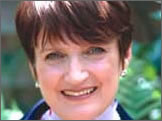 This regional order has been determined by a technical criteria determined by the broadcasters and Ofcom. The regional order will follow ITV regions. This ensures that the impact on ITV regional advertising markets is minimised.
This regional order has been determined by a technical criteria determined by the broadcasters and Ofcom. The regional order will follow ITV regions. This ensures that the impact on ITV regional advertising markets is minimised.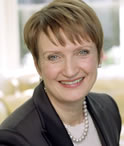 Comment – It is interesting that London will be switched in 2012. Same year as we host the Olympics.
Comment – It is interesting that London will be switched in 2012. Same year as we host the Olympics. From a technical perspective switchover it is not going to be a walk in the park. A phased switchover to digital by geographical area between 2008 and 2012. And we’ll only know how many people might be unable to get digital television once the analogue signal has been turned off and the digital signal boosted.
From a technical perspective switchover it is not going to be a walk in the park. A phased switchover to digital by geographical area between 2008 and 2012. And we’ll only know how many people might be unable to get digital television once the analogue signal has been turned off and the digital signal boosted. Only 25% of US business travellers are using Wi-Fi hotspots in airports and on planes, despite the growing availability of high-speed, wireless connections.
Only 25% of US business travellers are using Wi-Fi hotspots in airports and on planes, despite the growing availability of high-speed, wireless connections. Those surveyed also said that they were more interested in increased onboard personal space, bigger baggage allowances and better entertainment than blasting out emails mid-flight.
Those surveyed also said that they were more interested in increased onboard personal space, bigger baggage allowances and better entertainment than blasting out emails mid-flight.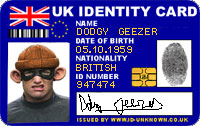 In a damning blow to the UK government’s love affair with identity cards, a British criminologist has warned that the new technology could actually increase, rather than solve, the problem of identity theft and fraud.
In a damning blow to the UK government’s love affair with identity cards, a British criminologist has warned that the new technology could actually increase, rather than solve, the problem of identity theft and fraud. “Studying the way that individuals disclose sensitive information would be far more valuable in preventing identity fraud than the evolution of technologically advanced but ultimately fallible measures to prevent misuse of personal information after it has been obtained,” she added.
“Studying the way that individuals disclose sensitive information would be far more valuable in preventing identity fraud than the evolution of technologically advanced but ultimately fallible measures to prevent misuse of personal information after it has been obtained,” she added. After having made the UK wait nearly 9 months since the launch of the
After having made the UK wait nearly 9 months since the launch of the  Those UK’ers who couldn’t wait for the much-desired, multi-media device to arrive had an avenue closed to them after Sony successfully took legal action against grey-importers of Japanese and US equipment.
Those UK’ers who couldn’t wait for the much-desired, multi-media device to arrive had an avenue closed to them after Sony successfully took legal action against grey-importers of Japanese and US equipment. UK Online have officially joined the 24Mbps broadband party by announcing the October launch of their own broadband ADSL2+ based product.
UK Online have officially joined the 24Mbps broadband party by announcing the October launch of their own broadband ADSL2+ based product. UK Online has been conducting technical trials of its ADSL2+ service since March of this year and their 24Mb broadband service should be available in October for under £30 (~$55 ~€43) a month.
UK Online has been conducting technical trials of its ADSL2+ service since March of this year and their 24Mb broadband service should be available in October for under £30 (~$55 ~€43) a month. Be Unlimited
Be Unlimited Temptingly, there’s no connection fee for new users with a free Wi-Fi-enabled modem lobbed in for no charge (the company will be using DSLAMs from Alcatel, and a Thompson 716g V5 wireless modem, optimised for VoIP and video-streaming applications.)
Temptingly, there’s no connection fee for new users with a free Wi-Fi-enabled modem lobbed in for no charge (the company will be using DSLAMs from Alcatel, and a Thompson 716g V5 wireless modem, optimised for VoIP and video-streaming applications.) Elvis Charges Mobile Phones
Elvis Charges Mobile Phones Nearly 40% of Mobiles Bought By US Teens For Texting
Nearly 40% of Mobiles Bought By US Teens For Texting A Feast Of Firefox Facts
A Feast Of Firefox Facts It seems that there’s a never ending supply of companies ready to shell out for surveys asking the most inane questions.
It seems that there’s a never ending supply of companies ready to shell out for surveys asking the most inane questions.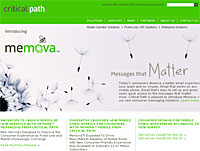 Plundering the depths of inanity further, the survey revealed that 34 per cent of females ranked spouse emails as the most important, and 10 per cent more blokes reckoned mobile email would make their lives easier. Fascinating.
Plundering the depths of inanity further, the survey revealed that 34 per cent of females ranked spouse emails as the most important, and 10 per cent more blokes reckoned mobile email would make their lives easier. Fascinating. There were red faces at HP (or perhaps a wild cackle from a Machiavellian PR guru) after a video presentation on their website leaked details of their next smart-phone release, the iPaq hw6700 series.
There were red faces at HP (or perhaps a wild cackle from a Machiavellian PR guru) after a video presentation on their website leaked details of their next smart-phone release, the iPaq hw6700 series. Both iPaqs come with a 3 inch, QVGA 240 x 320 pixel screen, with the handhelds measuring 7.1 x 2.1 x 11.8cm and weighing 165g. Power comes in the shape of a removable 1200mAh Lithium Ion battery
Both iPaqs come with a 3 inch, QVGA 240 x 320 pixel screen, with the handhelds measuring 7.1 x 2.1 x 11.8cm and weighing 165g. Power comes in the shape of a removable 1200mAh Lithium Ion battery Of course, it’s always wise to be wary when information is leaked in this manner, and there is something that doesn’t quite sit right in the presentation.
Of course, it’s always wise to be wary when information is leaked in this manner, and there is something that doesn’t quite sit right in the presentation.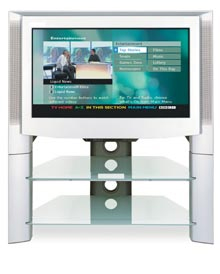 A couple of stories have been circulating about the BBC of late, both concerning their adoption of digital TV.
A couple of stories have been circulating about the BBC of late, both concerning their adoption of digital TV.